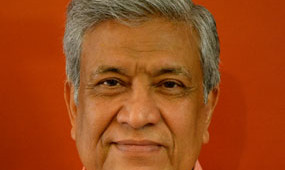 It’s becoming evident to futurists and enlightened business historians that Big Data is in the process of creating a management revolution. Most business leaders, especially senior executives in the traditional businesses are yet to fathom how this could happen. It’s understandable because it’s only in recent months that the focus is shifting more on its business dimension and less on technology. Moreover, only a handful of successful case studies of applying Big Data for prediction and analysis is doing the rounds.
It’s becoming evident to futurists and enlightened business historians that Big Data is in the process of creating a management revolution. Most business leaders, especially senior executives in the traditional businesses are yet to fathom how this could happen. It’s understandable because it’s only in recent months that the focus is shifting more on its business dimension and less on technology. Moreover, only a handful of successful case studies of applying Big Data for prediction and analysis is doing the rounds.
Revolutions happen only when the fundamental assumptions are questioned. The assumption so far is business decision-making is largely a gut (intuition) thing of its leaders. When this assumption is flipped, that’s when the traditional organizational structures are in danger of collapsing. The chances of this happening are already staring at everyone’s face.
Managing real time data and the need to use big data to run core business will need the current organizational structure to be disbanded. Flatter organizations could become imperative and CIO role could become more strategic. CIOs who are now technology driven will be forced to acquire business skills. Barriers to decision-making in organizations will come down resulting in better economic growth.
The eco-system for this revolution to take place is still weak. Business today needs more data scientists and this is not being taught yet in schools.
Big Data is about Big Business
The hype around Big Data in the last three years or so is getting bigger. Now the talk is not so much about the ability of technology to spew truckloads of data at the hapless analyst’s face but what and how businesses can use them smartly.
Big data was a big subject at this year’s Nasscom Leadership summit in Mumbai. The message driven home by several leaders were clear – It was high time the focus shifted from technology issues and capability of Big Data to profiting from it as a strategic differentiator. Mike Walsh, futurist and author, while delivering the keynote at the summit said: “It’s easy to get seduced by the idea of Big Data. Data alone – well, that’s the dull conversation fare… Big Data is about Big Business, not just high tech start ups. Traditional companies are hoping that by leveraging massive data sets and real time prediction models – they can start making real-time decisions.”
Delivering a session on ‘Big Data – Transactional to Transformational: Co-relating Business to Hidden Intelligence’ Manoj Singh, COO of Deloitte Touche Tohmatsu said India had a good chance to seize this opportunity but currently it doesn’t look well prepared for it. Quality of data in India is still not good. He said “Building a team of left brain and right brain people will help take advantage of the opportunity.” Big opportunity lies in sectors such as education and healthcare. India has a strong talent pool of pure IT specialists with expertise in big data technologies but those with a business focus are fewer than globally.
According to consulting firm KPMG, the market for big data will be worth $206.6 billion by 2016, from around $109 billion in 2012. The highest requirement is for professionals who understand both big data analytics technology and the business application of the resultant insights in ways that can benefit clients, said Sid Deshpande, senior research analyst, Gartner India Research and Advisory Services Pvt. Ltd.











Recent Comments